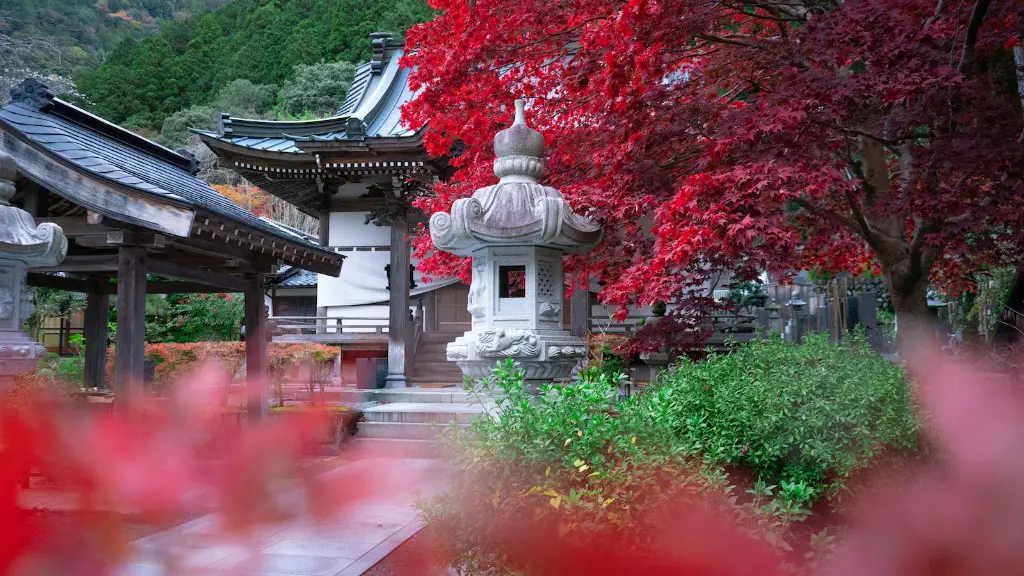Introduction
Brahmin is one of the four main classes of Hinduism, the other three being Kshatriya, Vaishya, and Shudra. In simple terms, a Brahmin is an individual who belongs to the highest class of Hindu society. This class of individuals is said to be responsible for the protection and preservation of the Hindu culture, values, and traditions. The Brahmins are divided into two distinct groups: the pravara brahmin (higher class) and the non-pravaras (lower class). In terms of caste divisions, the Brahmins in India form the highest strata of society, with the remaining three classes forming the lower strata.
Roots Of Brahmin
The roots of the word “Brahmin” come from the Sanskrit word “Brahmana,” which means “to grow, increase, or expand.” The term was first used in the Vedas, the sacred Hindu texts that form the basis of Hinduism. It is believed that the term “Brahmin” was first used to refer to a class of people who practiced rituals, studied scriptures, and interpreted the laws of the Vedas.
Control Of Knowledge
Brahmins have traditionally been the segment of Hindu society with the most control over knowledge and the most authority in spiritual matters. Brahmins are considered to be the spiritual leaders of Hinduism and are the custodians of the Vedas and other scriptures. They are responsible for teaching and passing on the teachings of Hinduism to future generations.
Priestly Duties
In addition to being spiritual leaders, Brahmins are also responsible for performing religious rites and rituals. They are the ones who perform ceremonies such as marriage, death, and other important events in the life of a Hindu. They are also responsible for advising their community on matters pertaining to religion and spirituality.
Role Of Brahmins In Society
Brahmins have traditionally held a very important place in Hindu society. As the highest class in Hinduism, they are generally regarded as the most educated and prominent members of the community. In many parts of India, Brahmins have historically held a significant degree of political and social power. In addition to this, they have traditionally held important positions such as chief priests, teachers, and advisers.
Lineage System
A distinguishing feature of the Brahmin class is their strict adherence to a lineage system. This means that Brahmins are classified based on their ancestry and who their parents and grandparents were. The lineage system was created to ensure that the highest class of people maintained their privileged position in society.
Connection To The Divine
Perhaps the most important aspect of a Brahmin’s identity is their connection to the divine. Brahmins are typically seen as being closer to the divine than other members of Hindu society and thus have an innate understanding of the divine and its teachings. This has traditionally allowed them to serve as the intermediaries between the human world and the divine.
Moral And Ethical Values
Brahmins are expected to exhibit high moral and ethical values and to live their lives according to the teachings of Hinduism. This means that they are expected to practice non-violence, truthfulness, generosity, and humility.
Preservation Of Tradition
The Brahmin class has historically been responsible for the preservation of traditional Hindu values, customs, and beliefs. They are responsible for passing on these values to future generations and ensuring that the religion does not become distorted or lost in modern times.
Role In Modern Society
Due to the rapid modernization of Indian society, the role of the Brahmin class has changed significantly in recent years. They are no longer the only custodians of knowledge and authority in spiritual matters. Instead, they now occupy a more diverse range of positions in society, from business leaders to political figures.
The Caste System
The caste system is an ancient social hierarchy in India which determines one’s social position based on their ancestral lineage, occupation, wealth, and other factors. Brahmins form the highest class in this system and are thus believed to be the closest to the gods. This has traditionally enabled them to wield immense power and authority in matters of religion, culture, and politics.
Strict Social Norms
Brahmins have traditionally held to very strict social norms. This means that they are expected to follow certain rules in order to maintain their high status in society. As part of this, they are expected to refrain from certain activities such as gambling and drinking alcohol.
Cultural Significance
The cultural significance of the Brahmin class cannot be denied. They have long been the guardians of the Hindu faith and culture, making sure that traditional values and beliefs remain intact. Many of these values and beliefs have been passed down for generations, helping to preserve the Hindu faith.
Brahmins In Modern India
The role of the Brahmin class in modern India has changed significantly since the days of the caste system. While they may no longer occupy the same immense social and political power as before, they still remain a highly respected and influential segment of the population. They are now often found occupying important positions in both the public and private sectors, with many becoming successful entrepreneurs, politicians, academics, and artists.
Educational Attainment
Due to the educational opportunities available to them, many Brahmins have attained a high level of education. This has enabled them to pursue successful careers in fields such as medicine, engineering, law, and business. This has helped to break down the caste system and allowed Brahmins to move up in society.
Economic Opportunity
The economic opportunities available to Brahmins have also grown significantly in recent years. This has enabled them to pursue successful careers outside of traditional roles such as education and religious leadership. However, there have been some instances of economic exploitation of Brahmins, such as the practice of charging excessive fees for services.
Protection Of Declining Communities
In recent years, the Indian government has taken steps to protect declining Brahmin communities. This has included providing financial assistance to those who wish to pursue higher education and raising awareness of the need to preserve the traditional values and beliefs of the Brahmin community.
Legacy Of Brahmins
The legacy of the Brahmin class is one of immense importance. The values, beliefs, and traditions of the Brahmin class have helped to shape the modern Hindu faith, making it a vibrant and thriving religion. By preserving the teachings of Hinduism, Brahmins have helped to ensure that their faith will continue to thrive for generations to come.


